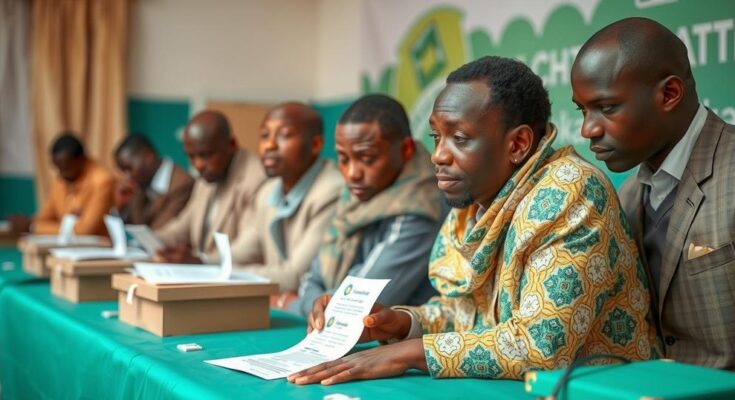Chad is conducting its first parliamentary elections in 13 years amid significant opposition calls for a boycott, alleging illegitimacy. Voter turnout appeared low in the capital, attributed to cold weather, while President Deby urges participation. The elections are deemed crucial for the government’s claims of transitioning to democracy despite skepticism from opposition leaders.
Voting is currently taking place in Chad’s first parliamentary election in over a decade, which the government promotes as a significant move towards ending military governance. However, the opposition has called for a boycott, arguing that the election is illegitimate as the outcomes were determined in advance. Voters are selecting representatives for parliament, provincial assemblies, and local councils, amidst claims of voter apathy and low turnout in the capital, N’Djamena. The boycott could allow President Mahamat Idriss Deby Itno’s candidates to secure uncontested victories. Election officials cite the cold weather as a reason for the lack of engagement, while opposition leaders express skepticism about the integrity of the election process.
Chad, one of the poorest countries globally, is witnessing its first parliamentary election in thirteen years, following a history of military rule and elections deemed fraudulent by opposition parties. President Mahamat Idriss Deby Itno, who assumed power through military means in 2021, aims to utilize this election to transition towards democratic governance. The backdrop of this election includes ongoing insecurity from Boko Haram insurgents and accusations against Chad related to its involvement in neighboring Sudan’s conflicts.
The parliamentary elections in Chad reflect a complex political landscape characterized by tensions between the government and opposition parties. Despite the administration’s assertions of an impending democratic transition, the opposition’s boycott highlights widespread skepticism regarding the elections’ legitimacy. Furthermore, challenges such as voter apathy and external conflicts add layers of difficulty to Chad’s ongoing struggles for political stability and development.
Original Source: www.aljazeera.com




